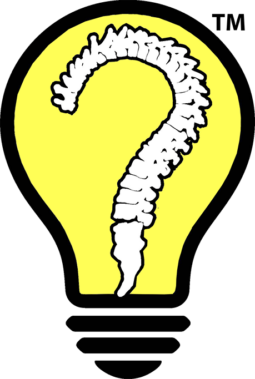
Evidence-Based Chiropractic Network
Empowering Through Evidence.™
13K Members
Imagine a Peer-to-Peer Community That Collates, Curates, Creates and Cultivates High Value Professional Continuing Education
Many chiropractors globally feel frustrated and alone because they're unsure of where or how to find credible, single source of science-based for their professional development.
Evidence Based Chiropractors is the largest global knowledge transfer network of professionals today.
Imagine A Single Source Of Science-Based Content Via A Global Education Network You Can Trust
Get Connected
You'll interact with the largest social learning network of evidence-based chiropractors.
Access Quality Content
Keep up to date with the latest news research, experience and development in
neuromusculoskeletal health.

Support World Spine Care
Contribute to bringing effective spine care to those in need
We know how hard it is to find a community of science-based chiropractors
We’ve united over 12,000 professionals around the world and counting.

Are you feeling alone and struggling to find a community that shares your values and ethics?
We’ve built a network of neuromusculoskeletal experts across the world to connect with and take your professional development to the next level.
You’ll help by contributing towards high quality research to relieve the global burden of disease and disability through evidence-based spine care.
Research Posts
Investigating musculoskeletal health and wellbeing; a cohort study protocol To conclude, IMH&W is a questionnaire-based cohort study which aims to elucidate associations and progression of pain, frailty and disability, to identify risk factors for poor outcomes and facilitate the execution and interpretation of research in order to improve outcome in specific populations where there is […]
A Humble Task: Restoring Virtue in an Age of Conflicted Interests They further argue that humility must serve as a crowning virtue-not a meek humility but, rather, a courageous willingness to recognize one's own limitations and one's need to use "compensating strategies," such as time-outs and consultation with more objective others, when making decisions in […]
Prescribing and dosing exercise in primary care Exercise prescription, although not part of the standard medical school curriculum, is now an essential skill in primary care. Exercise is an evidence-based treatment for osteoarthritis, back pain, tendinopathy, some cancers, depression, diabetes and cardiovascular diseases. It requires more than rudimentary understanding to successfully implement, as patients can […]
Evaluation and Treatment of Tandem Spinal Stenosis For stenosis of the cervical spine, judicious decision making is required. The natural history of CSM is one of stepwise progression—surgical intervention does not necessarily lead to reversal of the deficit, and so, any delay in surgery exposes the patient to potentially further loss of function. Systematic reviews […]
Postsurgical rehabilitation for adults with low back pain with or without radiculopathy who were treated surgically: protocol for a mixed studies systematic review Findings from our review will guide future research by identifying both the methodological limitations of previous studies, and the knowledge gaps in the current scientific literature. Future studies can be designed to […]
Effect of an upright (vs. stooped) posture on interpretation bias, imagery, and emotions Posture interacts with mechanisms involved in the maintenance of depression, as well as with depression-related emotions. This study has clinical implications that should be continued explored in order to clarify the role of manipulating the posture in individuals with depressive symptomatology. #science […]
Overlapping, Masquerading, and Causative Cervical Spine and Shoulder Pathology: A Systematic Review Shoulder and spine pathology commonly overlap. Knowledge of anatomy, pain referral patterns, shoulder kinematics, and examination techniques are invaluable to the clinician in making an appropriate diagnosis and guiding treatment. In this review, we present an algorithm for the identification and treatment of […]
Fear of Pain and Pain Intensity: Meta-analysis and Systematic Review The association turned out to be stable across different FOP measures, but was significantly moderated by age, pain localization, first-time pain episode, pain onset, treatment status, and anxiety sensitivity. A potentially necessary differentiation of patient subgroups and suggestions for an adjusted methodological approach of future […]
Alcohol and Human Health: What Is the Evidence? 1. Alcohol has been consumed for a very long time, and its types and patterns of consumption vary widely. Moderate alcohol consumption is defined as one US glass (14 g alcohol) per day for women and two US glasses (28 g alcohol) per day for men. 2. […]
Digital Care for Chronic Musculoskeletal Pain: A 10,000 User Longitudinal Observational Study These results support the efficacy and scalability of a DCP for chronic low back and knee pain in a large, diverse, real-world population. Participants demonstrated high completion and engagement rates, and a significant positive relationship between engagement and pain reduction was identified, a […]
Chronic Musculoskeletal Pain and Nutrition: Where Are We and Where Are We Heading? Based on the available literature, dietary behavior and quality could have an impact on chronic musculoskeletal pain conditions, but the direction of this impact is unclear. There is a need for additional human nutrition studies that focus on specific musculoskeletal pain conditions […]
A cross-sectional study of website claims related to diagnoses and treatment of nonmusculoskeletal conditions A total of 36 (26%) of the sampled chiropractic websites in Denmark mentioned diagnoses or symptoms of non-musculoskeletal origin on their websites without presenting an adequate clarifying explanation in agreement with the chiropractic scope of practice as defined by the Danish […]
Join over 12,000 Evidence-Based Chiropractors across the globe (world) in our thriving Facebook community – where knowledge, collaboration, and growth come together!
Donate
If you enjoy our content, please feel free to buy us a cup of coffee! We are grateful for your support of science-based spine care.
Research Posts
Get in Touch
WE'D LOVE TO HEAR FROM YOU
© Evidence-Based Chiropractic Network All rights reserved.


